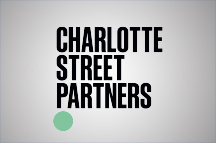If I was pressed to describe the prevailing mood in a single word, “distrust” would be near the top of the shortlist.
There is palpable distrust in politicians, corporations, the media, medicine, each other. It’s reflected in the way we vote, the way we consume, and in many of our interpersonal interactions.
The post-pandemic world – several years old now – hasn’t delivered on what many hoped would be a renewal of trust in institutions to do the right thing.
Rather, it seems to have produced a chasm which has driven many people to the political fringes, into fractured silos, or to disengage altogether.
It’s a profound challenge to solve and its implications are critical.
Take these stats from the Edelman Trust Barometer’s latest annual survey of 28 countries. The proportion of people who believe leaders within business, government, and journalism lie or mislead the public sits at 68%, 69%, and 70%, respectively.
More parochially, recently published data conducted by the Diffley Partnership for the Electoral Reform Society showed that, on a scale where 0 is “do not trust at all” and 10 is “completely trust”:
- Political parties scored an average of 3.1
- Politicians themselves fared worse at 2.8
- The Scottish parliament was marginally higher at 3.9
- The UK parliament sat somewhere in the middle at 3.4
These numbers may not surprise you, but they certainly leave much to be desired.
Plenty has been written and said recently about the “attention economy”, by which brands and digital platforms, across screens of varying size, compete for a slice of our focus. It has transformed society and the way politics is performed, among countless other things.
Human attention – in finite supply – is a highly sought after commodity. But what of another market with a shortage? The one for trust.
The moment cries out for someone or something to plug the gap and find more ways to earn trust back from the many with whom it’s been lost, rather than focusing principally on grabbing attention. For businesses, it’s a no-brainer opportunity with a clear and mutually beneficial role for industry itself and wider society.
After all, this distrust is not only affecting political outcomes. The data shows that the economy suffers too. When trust erodes, grievance rises and economic optimism drops.
Fortunately, the same is true for the inverse. As the chart above shows, with increasing trust “grievances dissolve and optimism grows”.
And therein lies the imperative to act if we are to move beyond lamenting the present-day economic condition to boosting aggregate optimism.
Take a moment to consider some of the brands you trust. Ask yourself why.
Is it the quality or durability of their products? Their level of influence in the market or on society? Their personalised customer service? Whether they’ve made measurable steps to decrease their carbon footprint? Or is it something more abstract, bound up in the way they make you feel?
Perhaps it’s all, some, or none of those reasons. But behind these attributes lies some element of trust, influencing why we choose to engage with this or that business.
Every engagement and transaction represent an opportunity for a business to forge trust with consumers. The power of this opportunity can’t be overestimated. Grasping it isn’t complicated.
While different rankings of highly reputable companies vary, choose one or another and you’ll find some common themes for how these companies have cultivated trust. By demonstrating competence and reliability over time. By aligning commercial objectives with an ethical framework. Above all, it’s very likely they’ve communicated openly and transparently and can tell an authentic story that resonates with people. From there, the rest follows on.
Business, according to the Edelman report, earned significant trust during the initial months of Covid-19, surpassing non-governmental organisations as the most-trusted “institution”. And it has continued to be seen in the eyes of the public as relatively more competent and ethical than government and the media.
So, businesses already have an advantage. But there’s still plenty of room to grow where other institutions have stagnated, and that growth must be underpinned by consistent, long-term maintenance of our trust.
We need, more than ever, to instil more confidence and optimism in each other – for reasons economic, political, existential. And that responsibility cuts across all sectors and industries, with no exceptions.
Chasing attention may deliver a quick shot in the arm, but it’s the patient and quiet effort of building trust that yields long-term payoffs – for business and wider society alike.
Bit by bit across each interaction, that essential work might just shift the trust needle in the right direction.













